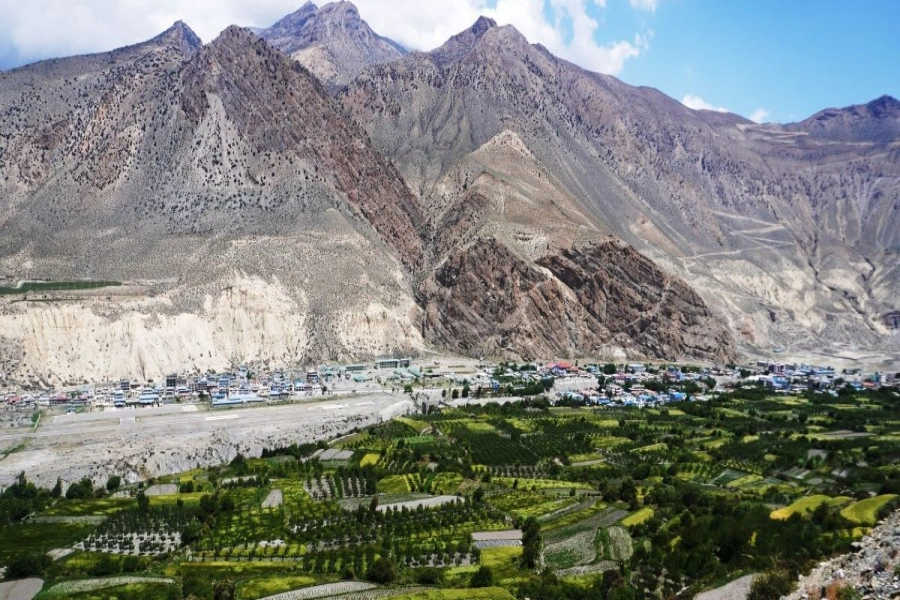Ojaswi Baidya and Ibha Baidya both confess to always having been particularly fond of silver jewelry. The sisters would always opt for silver instead of brass or even gold. Something about the sublime metal appealed to them and Ojaswi was also sensitive to metal, quickly getting itches and allergies when she donned metal jewelry.
Little did they know that their love for silver would later lead to them running a successful jewelry business. Today, as owners of the brand “Abha”, that mainly caters to customers in Nepal and Australia, they have taken their passion for silver accessories a step further.
Ojaswi, in particular, had always been fond of gifting silver jewelry to family and friends. However, she was never particularly satisfied with the quality of jewelry that she found in the market. Something about them just didn’t sit right with her. “Most jewelry I bought had good designs and looked really nice but there would always be something wrong with its quality. The polish would wear off soon leaving a dullness that ruined the aesthetic of the jewelry,” she explains.
While scavenging through various alleys in town for good silver jewelry, she came across local jewelry makers who had smaller, less glamorous stores and were tucked in corners of New Road and Thamel. These artisans made jewelry with good designs and quality. Ojaswi remarks that she was fascinated by the whole jewelry making process and skills that, she soon came to know, were handed down from one generation to another. “But they were saying this tradition wouldn’t continue for long as most youngsters had gone abroad for work or were simply not interested in jewelry making anymore,” she says adding that it broke her heart realizing that a craft as wonderful as jewelry making would become obsolete in a few years time.
Jewelry Brands in Brand Nepal 2021

And so she teamed up with her sister to start a business that could help these local jewelry makers earn a stable income as well as inspire the younger generations so that they would be interested in keeping the jewelry making tradition alive. Ojaswi decided to name the business “Abha” as a tribute to her sister and also because it means “splendor” in Nepali, which she felt reflected the vibe of their business.
Currently, “Abha” operates as an online business and customers can order various types of jewelry ranging from earrings, pendants, and brooches. All the jewelry are made by local jewelry makers who have found a bigger as well as international customer base, mainly in Australia, and also in places like Korea and China. The duo decided to focus on the Australian market, and Ojaswi’s husband, Abhishek Joshi, handles the export aspect. According to Ojaswi, they have a loyal following on Etsy, a website that focuses in promoting local businesses from all around the world.
As swell as things are, commissioning local makers to make the jewelry sometimes tends to be a little expensive. They have even had instances of local silversmiths rejecting their offers of work because of time constraints as well as the number of items they had to make. This is one of the reasons why they have taken to getting the products made by several silversmiths. “Abha” thus acts as a collective, rather than a manufacturer itself.
Moreover, according to Ojaswi, the jewelry market all over the world is already quite saturated and so their small endeavor feels lost in all the noise. Similarly, shipping their products tend to take days and that has also been causing a problem. Nonetheless, they are determined to push on and give their business a platform they feel it deserves.
Ojaswi reveals that their designs are as “organic” as possible, i.e. they are in touch with nature. “Of course, we wanted our product to reflect Nepali traditions, but we also wanted them to look as natural as possible,” she says. For example, they have a “Bajra” piece that derives elements from the design of Bajra, a special weapon owned by Indra, which is then tweaked to make it resemble a spider. Ojaswi adds that designs inspired by flowers and leaves are also popular among customers.
According to her, in Nepal, red and green stones are quite popular whereas customers from other countries seem to prefer moonstones or quartz. “When these stones are incorporated with silver, the end result is quite stunning. They have a certain simple yet captivating beauty that consumers can’t seem to resist,” she says.
Future plans for “Abha” include continuing promoting Nepali jewelry all over the world, keeping the skill of jewelry making alive by getting in touch with other local silversmiths and also bringing diversity in their designs and products. “Keeping the skills and traditions of jewelry making that is so unique to Nepal is the most important thing to us as a company,” says Ojaswi who believes that little efforts can go a long way in doing so.
(Urza Acharya)








































